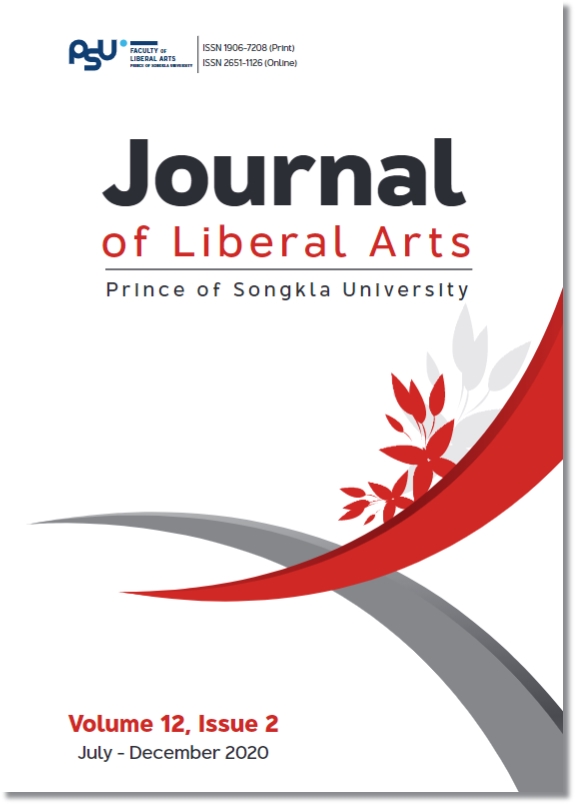The Community Resources Management through Design-Based Learning for Sustainable Self-Reliance of Local Communities
Keywords:
community resources management, design-based learning, self-relianceAbstract
The objective of this article is to explain the model of community resource management through design-based learning for sustainable self-reliance of local communities. This is a learning mechanism for community resource management for self-reliance resulting from the strength of the community. This is because most of the local communities have a way of life that is related to participatory community resource management with social and cultural capital as a learning innovation designed to strengthen community self-reliance. It arises from a systematic design thinking process and through accumulating knowledge and transferring knowledge from generation to generation to achieve the highest sustainability based on community participation without causing trouble and violating other people's rights.
References
Anyanwu, C.N. (2020). Community development: The Nigerian perspective. Gabesther Educational Publishers. http://books.google.co.th/books?id=kmmVAAAACAAJ
Brunetto, S.K. (2020, September 20). A glimpse on innovation: How do we structure the Design Thinking process at INNOVATION RADICALS? https://medium.com/@sebastiankummetzbrunetto/ a glimpse on innovation how do we structure the design thinking process at innovation radicals 6fcdf5583d74
Cobb, P., & Bowers, J. (1999). Cognitive and situated learning perspectives in theory and practice. Educational Researcher, 28(2), 4 – 15.
Collins, A. (1999). The changing infrastructure of education research. In E. Lagemann & L. Shulman (Eds.), Issues in education research. Jossey-Bass.
Galtung, J. (1980). Self-reliance: Concept, practice and rationale. Institut Universitaire d'Etudes du Développement. Geneva.
Gooneratne, W., & Mbilinyi, M., (Eds.). (1992). Reviving local self-reliance. United Nations Centre for Regional Development. Nagoya.
Keowaan, B. (2011). Farmers' association and farmer development strategy, leadership, human relations and psychology for farmers handout. Nonthaburi: The Office of the University Press Sukhothai Thammathirat Open University.
Kim, I., & Isma, M. (2013). Self-Reliance: Key to sustainable rural development in Nigeria. ARPN Journal of Science and Technology, 3(6), 585 – 592.
Nel, E., & Binns, T. (2000). Rural self-reliance strategies in South Africa: Community initiatives and external support in the former black homelands 2. Perspectives on community-based development in Africa. Journal of Rural Studies, 16(3), 367 – 377.
Phuwanatwichit, T. (2015). Conceptual framework of the community welfare concept based on community resources: Choices for sustainable community self reliance. “MFU Connexion” Journal of Humanities and Social Sciences, 4(2), 65 - 94. [in Thai]
Phuwanatwichit, T. (2017). Sustainable community resources management. Faculty of Humanities, Chiang Mai University. [in Thai]
Prokkati, K (2007). Right of people that come together as a community. Winyuchon Press. [in Thai]
Puangngam, K. (2008). Community and local self government.Bophit Printing. [in Thai]
Romrattanaphan, W. (2005). Social capital. Bangkok: The Project to enhance learning for happy communities. [in Thai]
Ruangoudom, N. (2011). The relationship between self-reliance and social capital: Case study at Khlong Lat Mayom Community, Bangramad Talingchan, Bangkok. Graduate School, Silpakorn University. [in Thai]
Sa-atthien, S. (2008). Social capital process in sustainable agriculture with the impacts on environmental rehabilitation of the community through the case study of Wangtaku Community, Wangtaku Sub-district, Bang Mun Nak District, Phichit Province. Faculty of Social Administration, Thammasat University. [in Thai]
United Nations High Commissioner for Refugees (UNHCR). (2005). Handbook for self-reliance. Switzerland.
Wongsa-San, K. (1999). Thai ways of life. Thiadwave Education. [in Thai]
Downloads
Published
How to Cite
Issue
Section
License
The authors retain the copyright to their article but the Journal of Liberal Arts, Prince of Songkla University reserves the exclusive rights to first publication.






